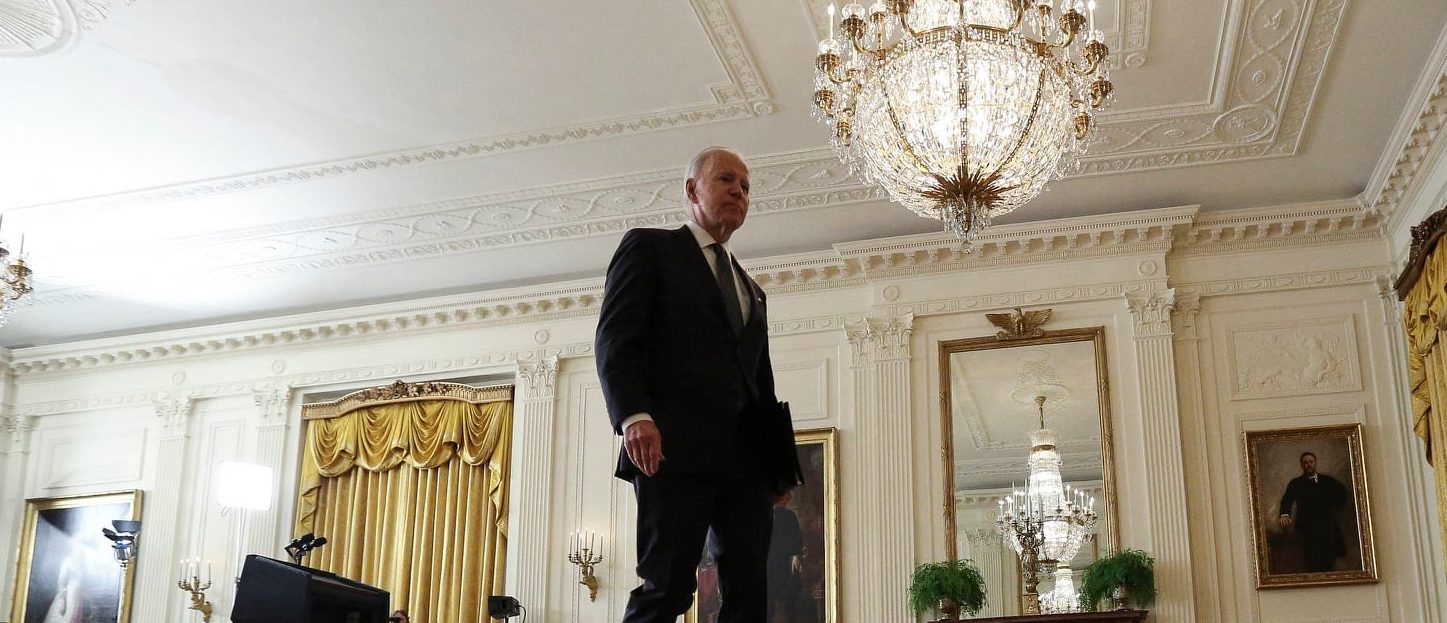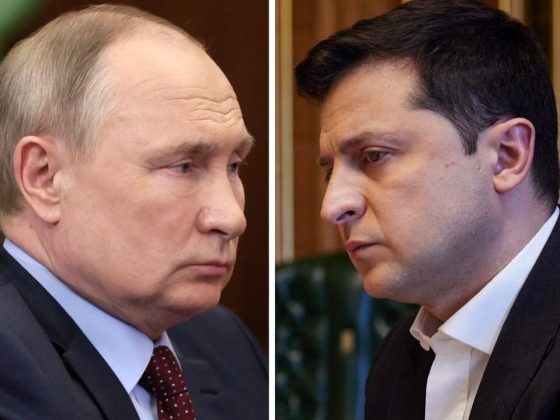The war in Ukraine unfolds miles away, but Americans follow it very closely. Concerned with rising gas prices, among other repercussions of this conflict, 86% of US adults considered the situation with Russia and Ukraine either very or somewhat important, according to a recent YouGov/Yahoo News poll.
The war on the ground is also reflected as a war of words. Speaking in a Republican National Committee podcast, former US President Donald Trump recently said that the war in Ukraine “Would never have happened” on his watch.
On the other hand, US President Joe Biden insists that he tried to prevent the war in Ukraine in every possible way. The tendency for presidents to become more popular in times of war does not apply now. Multiple polls reveal that on average 51.4% of Americans disapprove of Biden’s presidency, which is one of the lowest approval ratings since he took office.
“Increasing the importance of solidarity and the necessity to unite the hearts of the nations in conflict above mutual hatred should be of everyone’s interest.”
Could the war have been avoided? Most likely it was inevitable. The forces operating in the world are changing very fast and the global scenario looks like a stormy sea. Heavy winds blow in all directions causing huge tides of conflict flooding the world on various levels.
I do not want to predict in what form the current war will end for the Russians or for the Ukrainians, but there is no doubt that the world is not getting better. Both the US and Europe see some benefit in the current conflict as it changes the balance of forces and strengthens their hegemony.
“The current state of affairs exposes the true root cause of wars. It is human nature, the egoistic desire to benefit at the expense of others, which is already overblown and growing constantly. We cannot fix the war with the same egoistic powers at our disposal that incited the way or in the way where one side prevails by overpowering the other. In a global village that we all live in no one will succeed as a result of wars, everyone will lose.”
In fact, the current state of affairs exposes the true root cause of wars. It is human nature, the egoistic desire to benefit at the expense of others, which is already overblown and growing constantly. We cannot fix the war with the same egoistic powers at our disposal that incited the way or in the way where one side prevails by overpowering the other. In a global village that we all live in no one will succeed as a result of wars, everyone will lose.
World peace seems like a far-fetched utopian concept when we look at today’s situation, but we have no choice but to aspire to that ideal. We need to exert the utmost efforts to calm the rough waters of war by rising above our divisive nature that drives a wedge between people and nations and tears them apart. We will get closer to peace only when we recognize that nature is an interconnected and interdependent system and that we humans are the only disrupters of the sensitive balance in nature. As a consequence we inflict harm on ourselves and reach an unsustainable state.
Increasing the importance of solidarity and the necessity to unite the hearts of the nations in conflict above mutual hatred should be of everyone’s interest. Rav Yehuda Ashlag explained this critical goal as a means to achieve world peace as WWII erupted: “Do not be surprised if I mix together the well-being of a particular collective with the well-being of the whole world, because indeed, we have already come to such a degree that the whole world is considered one collective and one society.”











